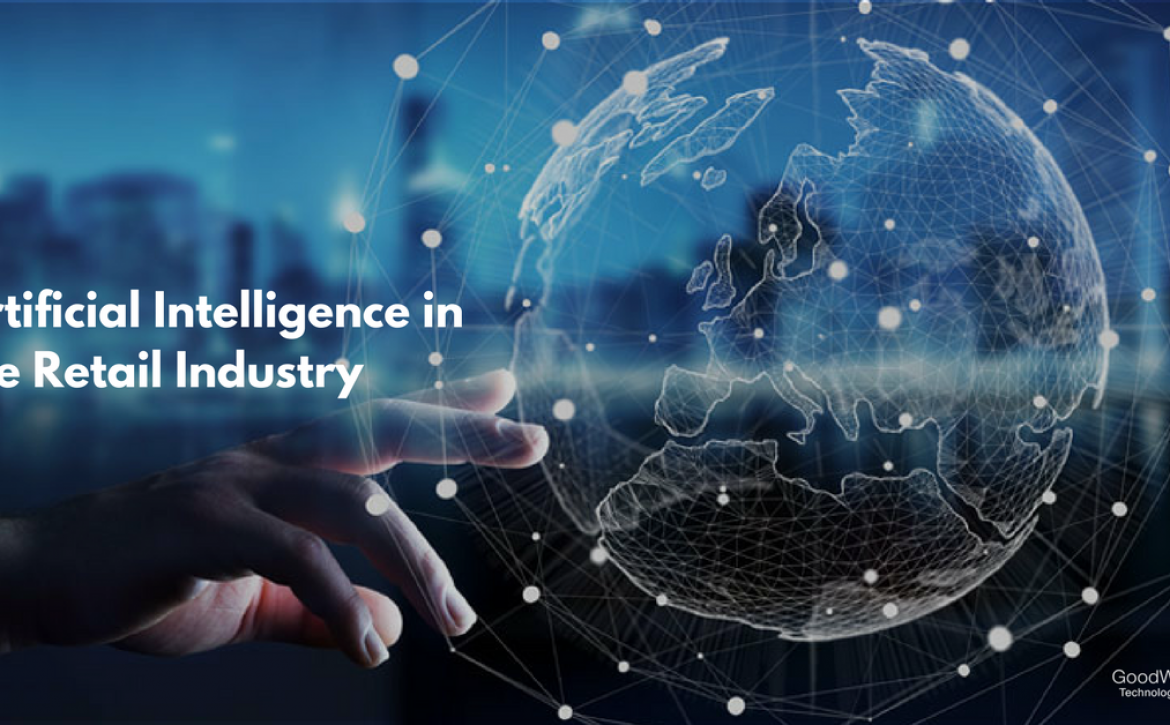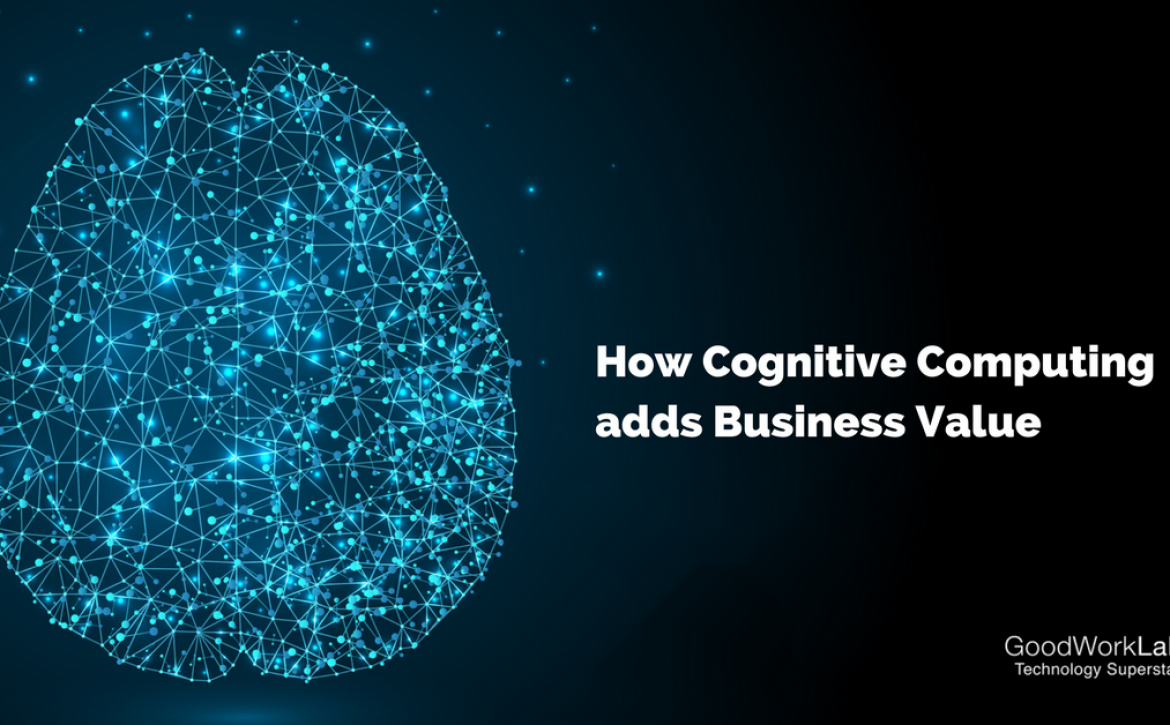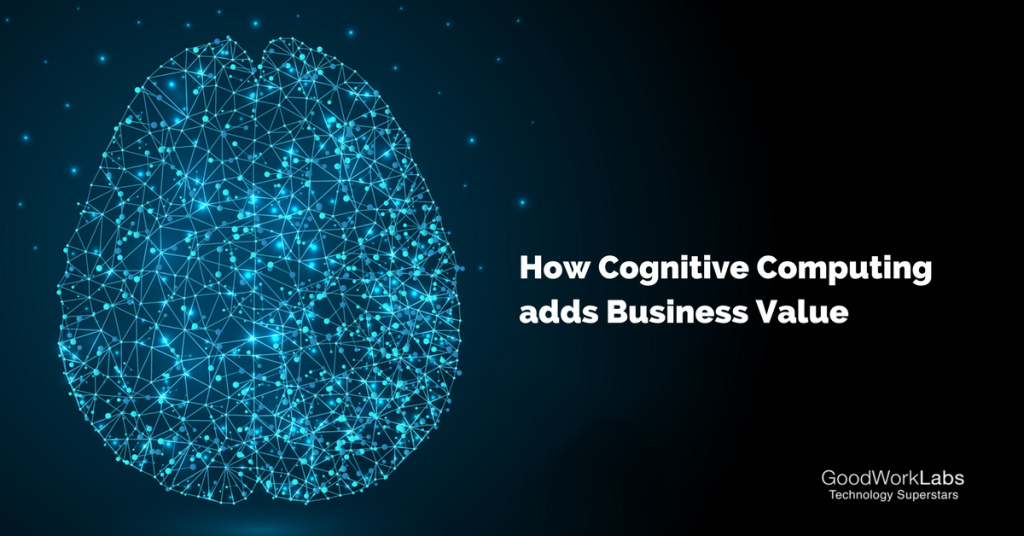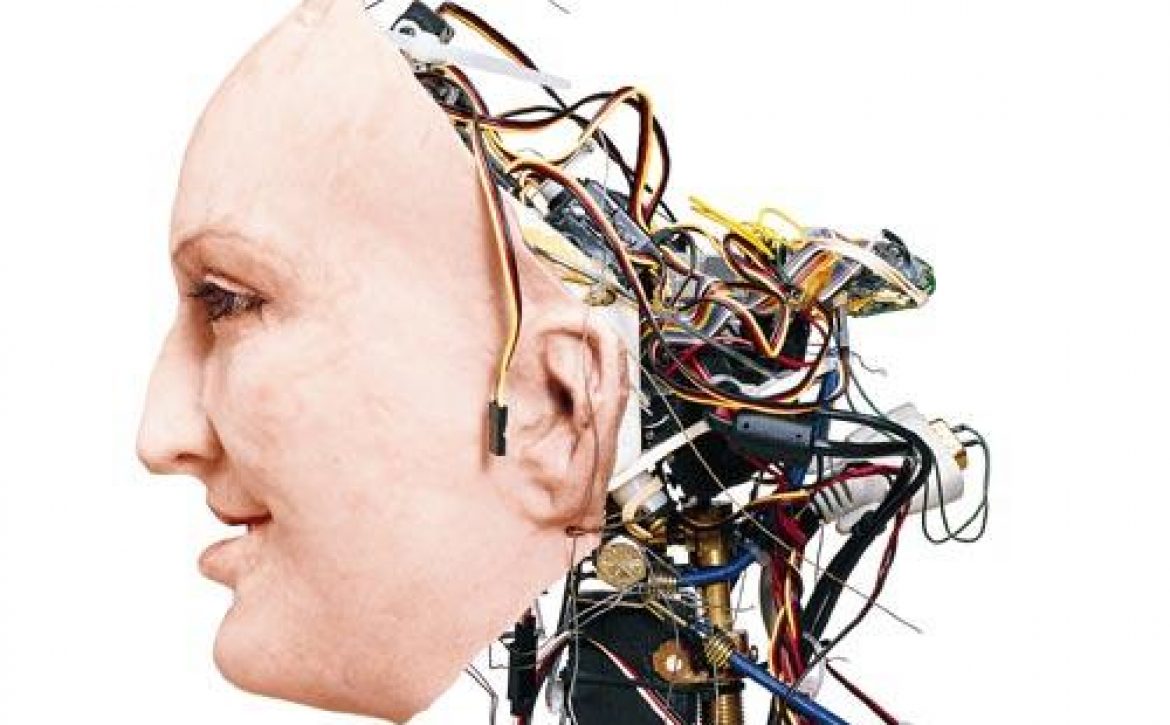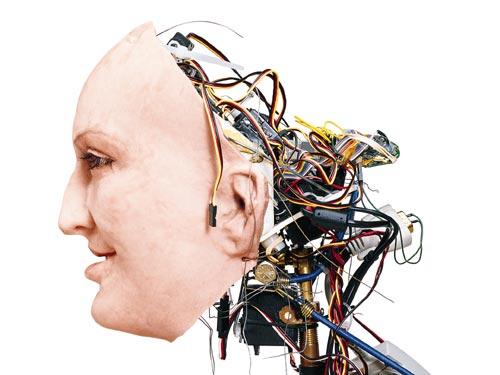How Artificial Intelligence will shape the Retail Industry
Artificial Intelligence and Machine Learning in the Retail Industry
While the world is busy talking about Artificial Intelligence powered technologies such as self-driven cars, machines challenging human intelligence at a game of chess, and AI technologies in recruitment, there still remains an untapped potential for AI in the retail industry.
With most retailers now focusing towards providing an omnichannel experience for their shoppers, AI can play a crucial role in disrupting the retail industry.
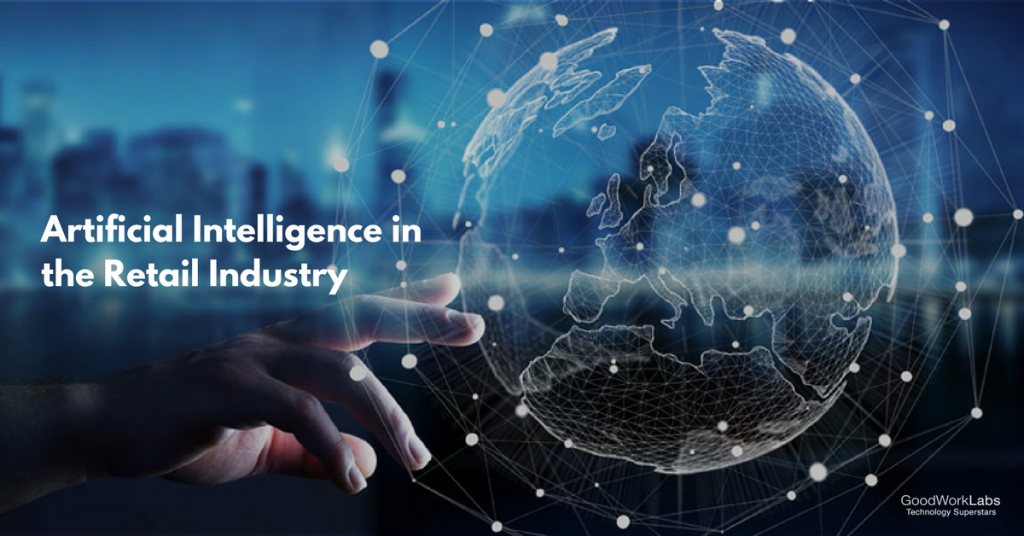
Creating Smart Shops with Artificial Intelligence
While AI assistants such as Siri and Google Home help us maintain our day-to-day groceries list and change our shopping experience, an ideal situation would be to walk into a smart store without any shop attendees or long check-out queues.
Imagine a shopping experience where you can just enter a shop, pick up the stuff you want, a bunch of facial recognition algorithms process your purchase, and automatically money gets deducted from your digital wallet when you leave the store! Suddenly, shopping seems to become more of technology experience.
Amazon has been marginally successful in replicating this experience for customers with its Amazon Go grocery store. In order for shoppers to use this, they need to install the Amazon Go app. There are digital sensors on the shelves that detect when purchases are made and the money gets deducted from the customer’s account when he or she exits the shop.
Amazing isn’t it? This is what a future-ready AI store should ideally look like!
Predicting online customer behavior with Machine Learning
We live in a digital world today where every minute truckload of data about customer behavior is recorded and stored. But most companies struggle in extrapolating this data into actionable steps that can increase their ROI by 10X times.
You may have luxurious marketing and advertising budgets to target your customers, to get awesome click-through rates, but how are you making your customers tip over the fence and make a sale?
With Machine Learning tools, you can create an intelligent and automated marketing system that helps you with:
- customer segmentation
- predicting customer value and
- designing product recommendations.
But it doesn’t end with just that. Machine learning also helps us optimize our Ad budgets and invest them in the right customers.
In a world where resources and time are always limited, we are forced to make quick and smart decisions. But machine learning algorithms are programmed to analyze this huge pool of customer data within a fraction of seconds and identify customers who are 65% more likely to make a purchase. Thus, in this way, ML helps to justify and set optimum ad bids to target customers.
Product recommendation is another favorite pick for top marketers. ML helps to analyze online customer behavior in depth, such as the products they are interested in, the blogs they read, the price ranges they operate at etc. Based on all these interactions, a business can invest in curating content that makes the shopping experience as “personal” as possible.
Artificial Intelligence and Cognitive Computing in the Retail industry:
AI and cognitive computing are adding the “innovation” to the retail industry. Creating an omnichannel experience for customers has become the top most priority for retail brands.
Out of the many retail sections, in this blog post we are going to concentrate mainly on two AI integrated retail categories:
1) Product Recommendations:
IBM’s Watson, powered with its cognitive computing abilities is an excellent choice for brands who are looking to provide both in-store and online product recommendations.
- AI-powered retail store
In this example, we see how a New York based wine company called Wine4Me decided to choose the AI technology of IBM Watson to make in-store wine recommendations for its customers. The goal was to make wine shopping an easy and personalized experience.
But the first step was to provide Watson with ample data from wine tasters and also teach Watson how people ask and shop for wine. Based on the occasion, price, sweetness, brand, and age of the wine, Watson should be able to bring up a list of wine recommendations that would suit the customer’s demand.
Now, this whole AI-powered shopping technology works as a win-win for both the retailer and the customer. Customers, on one hand, enjoy a hassle-free and engaging shopping experience while retailers can make better inventory decisions by tracking customer preferences.
- AI-powered digital store
In this example, we will talk about how the San-Francisco based premium brand The North Face integrated Watson on its digital platform to create an unparalleled shopping experience for its customers. The North Face is a premium outdoor product company specializing in outerwear, coats, backpacks etc
Though SEO filters and keyword phrases help in attracting customers to the website, most brands forget to communicate with their customers to help them find what they want. This is where AI can help you establish that user connect.
Let us assume that a user wants to buy a jacket online, then the AI platform asks the user a series of questions such as the purpose of the jacket, the time period during which he will use it, which place will be visiting, color preferences, material preferences and so on. The user is free to answer all these questions in his own style and type in any response.
With every response, the AI will trigger a series of product recommendations that closely match the user’s requirement. Now, this sounds fancy, doesn’t it?
But it all boils down to data and also literally teaching the AI what would the possible use case scenarios be that users would identify themselves with. Even the most non-obvious statements and taken for granted business scenarios need to be keyed in so that the AI helps to generate the right response.
This next-generation online shopping experience is sure to make both customers and retailers conscious of their expectations. Thus, if used in the right way, AI has great potential to provide product recommendations that can increase revenue from sales by 10x.
2. In-store Sales:
AI is all set to change the traditional shopping experience when a customer walks into the store. With e-commerce booming, you find lesser customers who are willing to enter a store and interact with a store assistant.
So, how can AI help in increasing the customer foot-fall at a brick and mortar retail store? The answer is simple – by using AI-powered robots.
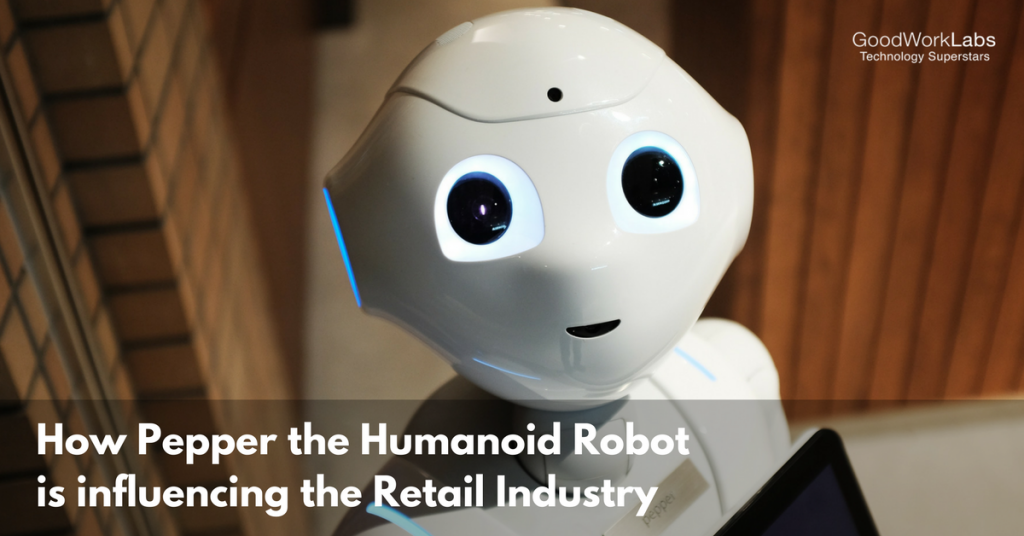
Pepper, a humanoid robot from Softbank’s robotics company has been in the news for enriching the customer shopping experiences at retail stores and serving as a retail concierge. Stores across the US, who have adopted Pepper as their smart shop assistant, have recorded almost 70% increase in customer walk-ins and sales.
Now that’s huge, isn’t it?
But what does this humanoid Pepper do differently from a salesman?
Firstly, Pepper acts as a brand ambassador for the store that drives in customers. Based on sheer curiosity, customers are more likely to stop by your store to experience an interaction with a robot who could help them with their shopping decisions. It almost feels like having a friendly celebrity with whom you can take a tour of the store.
Secondly, the humanoid robot is programmed to sense movement, emotion, offer shopping advice, product information, etc. Thus, it helps the user make an informed purchase. It has a tablet positioned on its chest where the user can key in his preferences and based on that Pepper will offer suggestions.
This definitely boosts user engagement and conversations inside a store. And the best part is that Pepper is always connected to the internet and all the data thus collected is stored in the cloud. So, next time when the same customer enters the shop, it becomes easy to showcase products based on his/her interests.
Thus, Pepper helps to automate all the obvious and mundane tasks at a retail store and transform in-store shopping into an engaging and joyful experience for customers.
The future of Artificial Intelligence in Retail
While we are positive and hopeful that the future of retail is likely to be dictated by AI, we also notice that there is still time until this technology gets widely accepted in stores around the world.
One of the major constraints involves high budgets, thus making it easy only for the bigger players such as Amazon, Walmart, Target etc to become early adopters of such technologies.
But having said that, it is time that retailers identify the potential that AI and Machine Learning can make to their business and take steps to make the shift soon.
If you would like to build an AI-powered solution for your retail business, then drop us a short message with your requirements
[leadsquared-form id=”10463″]

